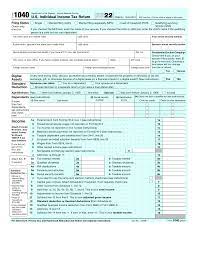 Like death and taxes, serial ADA litigants seem inescapable, but if the lawsuits remain the same the players change from time to time. It’s worth knowing who’s who when you or your client gets sued.
Like death and taxes, serial ADA litigants seem inescapable, but if the lawsuits remain the same the players change from time to time. It’s worth knowing who’s who when you or your client gets sued.
First, in the just rewards category, Scott Johnson, whose name appears dozens of times in my blog posts, and thousands of time as the plaintiff in ADA lawsuits has been sentenced to 18 months of home detention and a healthy fine for tax evasions. You can read about it here: Carmichael attorney known for suing under ADA sentenced for filing false tax returns. I recently wrote about the Ninth Circuit’s unwillingness to treat the truth as something important in ADA serial filer cases.¹ Of course just because the Court found he lied on his taxes doesn’t mean Johnson was being untruthful when he swore, thousands of times, that he intended to go back and patronize businesses he had never patronized for any reason other than filing ADA lawsuits, right?
Now on to Florida. Like others who follow ADA developments I have known from my research that Florida is a hotbed of serial filer activity. I only recently had to deal with a Florida serial filer and really got a first-hand view of the extent of the industry. Douglas Longhini, for example, appears to have filed hundreds of lawsuits in the last several years, which isn’t up to Deborah Laufer or Scott Johnson rates, but is more than enough to cast doubt on his claim that he is doing anything but trolling for lawsuits. Longhini is far from alone in this enterprise; other names with multiple lawsuits include Renzo Barberi, Howard Caplan and Ryan Turizo. There is also an entity serial filer, Florida Fair Housing Alliance, Inc. that was incorporated by Turizo and represented by his attorneys. It was incorporated in 2020, filed a number of lawsuits based on “testing” apartment complexes by making pretextual phone calls, and then dissolved in January of this year. It dismissed its last case on the day of the scheduled hearing on the defendant’s motion to dismiss. The dismissal was without prejudice; an almost sure sign that FFFA surrendered rather than face scrutiny by the Court. I also can’t say I know of any legitimate non-profit disability advocacy groups that exist only long enough to file lawsuits and then dissolve.
The other news from Florida is that Sarah Murray of Murray & Associates is continuing to send demand letters claiming she represents Pursuit of Respect. The last time I checked into Pursuit of Respect and Ms. Murray neither ever appeared to have filed an ADA lawsuit and checking today showed the same thing. Pursuit of Respect, Inc. seems to have a law office as its address, and a minimalist website that hasn’t been updated since I first looked at it in 2020. Ms. Murray’s demand letter continues to invoke the Fair Housing Act, which has no requirement for website accessibility. I don’t find her demands credible.
Speaking of Pursuit of Respect, I learned on October 27, 2023 that the Sarkissian Law Group filed a small claims court action against a local mortgage broker asking for $5,000 in attorneys fees based on a lack of website accessibility. This is a first as far as I know, but it tells you something important about these claims that the plaintiff does not ask for any relief other than attorneys’ fees. You can draw your own conclusions about how much the lawyers care about those with disabilities or their supposed client, for whom they don’t even seek statutory damages.
Headed north to New York, lawyers and their clients continue to exploit the fact that most district judges in the Second Circuit continue to believe the ADA covers stand-alone websites and are reluctant to grant motions to dismiss. Barclay Damon recently blogged about a new crop of plaintiffs represented by Stein Saks: ADA Accessibility Lawsuits: New “Tester” Plaintiffs—Bryan Velazquez, Daniel Rodriguez, Marina Iskhakova, Elbert Dawkins, Marta Hanyzkiewicz, and Warren Zinnamon—Targeting Businesses in Recent Flurry of Federal Lawsuits. Stein Saks is only one of several firms that continue to file these lawsuits. From my experience lawsuits filed in federal court in New York are generally filed by firms with a least some ability to prosecute the suit. They represent a real threat but I am told that four figure settlements are available.
Speaking of New York, I recently heard a name I had not run across for several years, CityVision Services. The last time I blogged about this group was in 2017, when they were operating in Texas filing discrimination complaints against apartments that supposedly discriminated against individuals with service dogs.² Michael Hutter, an attorney in New York, told me about a recent decision against CityVision in a housing discrimination complaint filed against one of this clients. Besides a victory on the underlying discrimination complaint his client beat a retaliation claim. You can read the decision here: Court Decision. I had not been keeping track of CityVision since it more or less departed Texas, but based on ProPublica’s look at it it seems to be a shadow of its former self and reported revenues have tumbled since 2016. Propublica Article.³
The Western District of Pennsylvania is, as it has been since 2015, a very hospitable place for serial ADA litigation. About 250 ADA lawsuits were filed in 2022 with the usual list of serial plaintiffs: Charlap, Douglass, Murphy, Jahoda, Kolesar, McCann, McMoreland, Niles and few others with fewer lawsuits. As long as judges in the Western District are receptive to these cases and willing to overlook the very obvious problems of standing for professional plaintiffs the filings will continue. As with New York, the lawyers involved are capable of prosecuting the cases and often demand five figure settlements.
Here in Texas, the roster serial filers haven’t changed much in the last few years. Sapp & Sturgill PLLC and Duncan Strickland continue to file lawsuits in the Western and Northern Districts for plaintiffs who, amazingly enough, always live within 30 miles of the business they sue, no matter where it is. It isn’t clear where the plaintiff is going, but they always pass the business frequently although, boilerplate filings being the rule, the list of things they might have been looking to buy is the same for a sports bar as a pawn shop. In North Texas Douglas Shapiro files lawsuits at a steady pace and recently Ku & Mussman seem to have filed a few as well.
I was surprised to hear the Bruce Tharpe, who I last mentioned in 2021 (4) has been very active in the Southern District of Texas. He was notable in the Northern District for targeting Asian businesses located in a relatively small geographic area. I haven’t analyzed his filing pattern in the Southern District except to note that for his current plaintiff, Randy William Brast, he files on a monthly basis, with 8 to 10 lawsuits filed on the same day each month. I found it interesting that one of his recent complaints, filed against La Pupusa Loca (Case No. 4:23-cv-01340 in the Southern District of Texas) includes photos of the defendant restaurant intended to show it has no accessible parking. They also show pretty clearly that it was closed because the parking lot is completely empty. And they don’t show the accessible parking further along the building. Trying to eat at a restaurant that isn’t open is going to create problems that have nothing to do with accessibility.
This sort of thing intrigues me, so I checked another case filed the same day, Brast v Columbian Cuisine, Case No. 4:23-cv-1339 (SD Tex). Pictures again, this time with the parking lot empty except for a single truck parked in front of the restaurant. Google Earth helpfully showed me that an accessible parking spot is two stores away, in front of Sherwin Williams. This isn’t surprising because major retailers are usually pretty careful about ADA compliance. A shopping like the one where Columbian Cuisine is located does not need an accessible parking space in front of every storefront – only the correct number in various locations. Mr. Tharpe, having filed hundreds of ADA lawsuits, presumably knows this and presumably doesn’t care.
Next natural stop on a tour of serial filers would be California, but cases from California appear so frequently in this blog that I’m going to skip it. In the meantime, if you have a favorite serial filer that I’ve overlooked, or suspect you’ve gotten a lawsuit or demand letter from one, please let me know.
++++++++++++++++++++++++++++++++++++
¹ When it comes to ADA tester standing in the Ninth Circuit, the truth no longer matters.
² Good news for those attacked by CityVision’s FHA complaints
³ It is important to note that “CityVision” and “City Vision” are names used by several completely legitimate businesses and non-profits. CityVision Services, Inc. can be distinguished by the fact that it does not appear to have a website and is associated with Gary Lacey.
(4) FHA and ADA Odds and Ends. Tharpe has an interesting personal story. You should Google him.


 The title of today’s blog recognizes the gift bestowed by Judge Nannette Brown on everyone interested in the ADA in all its many details. Bailey v. Bd. of Commissioners of Louisiana Stadium and Exposition Dist., 2020 WL 5309962 (E.D. La. Sept. 4, 2020) is the latest of Judge Brown’s decisions concerning the dispute over stadium seating in the Superdome. Written after trial, the 64 page decision methodically dissects the law concerning concerning which standards apply to what parts of a facility after alterations, what the sight-line requirements for stadiums are under the various standards, including an exposition of the law concerning Auer deference and the effect of Kisor v. Wilke, how Title II program accessibility requirements fit into design/build standards, what kind of control is required for a person to be an “operator” of a public accommodation, when and how the “reasonable modification” requirement in Title III of the ADA applies to Title II entities, and last but not least the extent to which Title I’s “interactive process” requirement might apply to Titles II and III. The Fifth Circuit, and maybe the Supreme Court, will have the last word in this case, but if you are looking for a quick reference to almost every issue that comes up in a case involving altered facilities you can find it in this decision.¹
The title of today’s blog recognizes the gift bestowed by Judge Nannette Brown on everyone interested in the ADA in all its many details. Bailey v. Bd. of Commissioners of Louisiana Stadium and Exposition Dist., 2020 WL 5309962 (E.D. La. Sept. 4, 2020) is the latest of Judge Brown’s decisions concerning the dispute over stadium seating in the Superdome. Written after trial, the 64 page decision methodically dissects the law concerning concerning which standards apply to what parts of a facility after alterations, what the sight-line requirements for stadiums are under the various standards, including an exposition of the law concerning Auer deference and the effect of Kisor v. Wilke, how Title II program accessibility requirements fit into design/build standards, what kind of control is required for a person to be an “operator” of a public accommodation, when and how the “reasonable modification” requirement in Title III of the ADA applies to Title II entities, and last but not least the extent to which Title I’s “interactive process” requirement might apply to Titles II and III. The Fifth Circuit, and maybe the Supreme Court, will have the last word in this case, but if you are looking for a quick reference to almost every issue that comes up in a case involving altered facilities you can find it in this decision.¹ 

